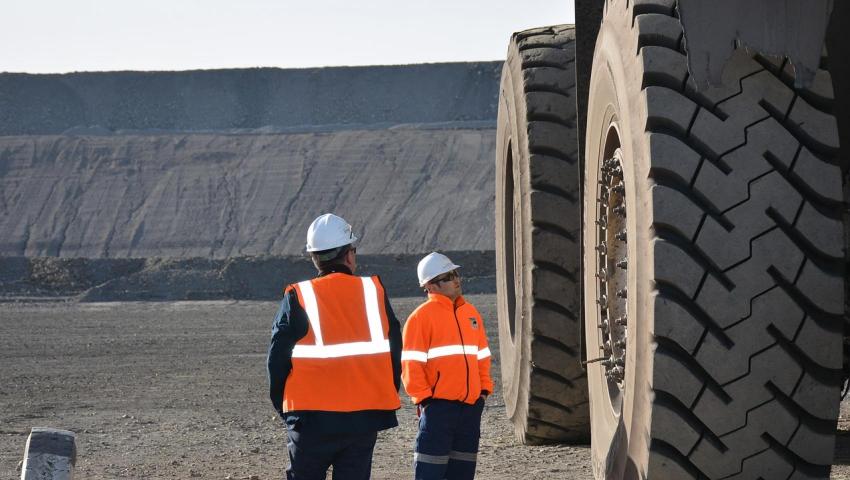The demand for raw materials in the EU will increase six times by 2030

Growth in the demand for mining raw materials in the European Union is expected to increase six times in 2030 and up to 15 times in 2050. This was stated by Eng. Dragomir Draganov, Chairman of the Management Board of the Bulgarian Chamber of Mining and Geology during the Solemn Meeting for Miner's Day, which is celebrated today, August 18, on the feast of St. Ivan Rilski. Today, the awards of the Bulgarian Chamber of Mining and Geology were presented to deserving and related to the industry, on the occasion of their professional holiday, BTA reported.
The mineral and raw materials sector is the basis for the development of the economy and a vital sector, Draganov pointed out to the guests of the forum, among them a number of representatives of state institutions, such as Krasimir Nenov - Deputy Minister of Energy, Stoyan Toshev - Executive Director of the Forestry Executive Agency, Atanas Atanasov - chairman of the National Statistical Institute, Plamen Dimitrov - president of the Central Statistical Office, chairmen of municipal councils from the country, representatives of the Bulgarian Academy of Sciences, the University of Mines and Geology, the University of Architecture, Construction and Geodesy, the University of National and World Economy, representatives of the business.
Dragomir Draganov pointed out that more than three quarters of what we use in our daily lives is produced from mining raw materials. To be able to respond to the increased demand for mineral raw materials for our companies, this means large-scale investments, and this requires stability of the political and business environment, Draganov emphasized. The objectives set by the EU require a well-developed and functioning mining industry. The EU currently consumes 30% of the world's production of critical raw materials, but only extracts 3% of them, the President of the Chamber said. The biggest problem, he says, is that many of the critical raw materials are almost entirely reliant on imports, and suppliers are often highly concentrated in a small number of third countries. This concentration exposes the EU to significant risks related to the security and value of supplies, Draganov said.
He said that the target set by the EC through the critical raw materials legislation is to reach a minimum of 10% own production by 2030. The EU's ambitions for a green transition place a serious emphasis on the importance of the mining industry, the specialist notes. In his words, an overly restrictive regulatory framework for European mining companies, which would put them at a disadvantage compared to the mining industry in other parts of the world, should not be allowed. For Bulgaria, this is a chance to strengthen its positions and take important steps in its development, noted Dragomir Draganov.
The mining industry in Bulgaria provides nearly 5% of the gross domestic product, depending on the international prices of stock exchange goods, he informed the guests of the forum. The branch is strategically important because it provides raw materials to key sectors such as metallurgy, construction, engineering, the chemical industry, energy and other industries and is a guarantor of the country's raw material and energy independence, said Draganov. In 2023, Bulgaria continued to occupy leading positions in Europe in the extraction of minerals. The main raw materials mined in Bulgaria are lignite coal, lead-zinc, copper and polymetallic ores, gypsum, limestone, bentonite, kaolin, quartz sands, refractory clays, marble. About 80% of the mining activities are carried out in an open pit method, Draganov said.
In 2023, BGN 800 million is the industry's contribution to the state budget in the form of concession fees, VAT, profit tax and personal income tax, as well as contribution to insurance funds, according to data from the Institute for Market Economy. The total extraction of minerals in Bulgaria in 2023, according to data from the Ministry of Energy, is 119.8 million tons, which is a decrease of 5% compared to 2022. The total net value of production in industrial enterprises from the extractive industry in 2023 is nearly BGN 4.2 billion, marking a drop of 4% compared to 2022, Dragomir Draganov announced. According to him, the decrease is mainly due to the serious drop in the production of lignite coal by 41%, which is the lowest level in recent decades. The general trend is for the value of the production in the mining industry to grow constantly and stably by about 13% per year and a total of 34% for the period 2020-2023, Dragomir Draganov also stated.
